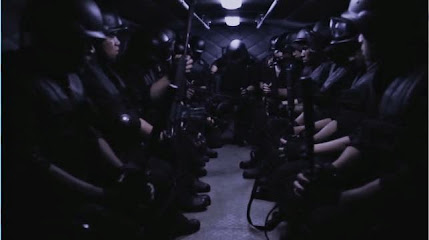
As if striving to be the definitive revisionist western of the Seventies, Dirty Little Billy opens with a close-up of mud. That sets the tone as well as anything, since Dragoti and his production team take the bold idea that the Old West wasn't the tidiest place to almost self-parodic extremes. Our setting is Coffeyville, a struggling municipality aspiring to "third-class city" status and with a leg up in its competition with a neighboring community beset with an epidemic. Into this striving town comes Billy with his Ma and his mean old stepfather, who has taken them from the big city to live out his dream of drudgery on the farm. Billy is rebellious before the family gets off the train, and losing his shoe in the mud doesn't help his mood. We may as well note now that Warner had cast a Bonnie & Clyde alumnus as Billy, but rather than Warren Beatty or Gene Hackman it is Michael J. Pollard. It might have occurred to the old man that giving Pollard the lead in any picture would be like giving Elisha Cook Jr. top billing after The Maltese Falcon, but to be fair to Warner he was not the first to think that in Pollard a star had been born. This was, after all, the age of stars without glamour, as Little Fauss & Big Halsey attested by making Pollard and Robert Redford equals. The problem with Pollard, compared to those briefly considered his peers, was that he seemed to be a one-trick pony, capable of but one character type: a moron. At most he might be deceptively moronic-looking, but such a variation was unlikely to enhance his charisma. The perverse point of Dragoti's project, however, seems to be to show that Billy the Kid had no charisma, or much intelligence. The point is made, but it never sharpens to the point of satire as it would seem to need to in order to hold our interest.
Back to the story: resentful of a lad who refuses to recognize him as a father and proves an incompetent farmer, stepdad persuades Billy to run away, but the kid is barely out of town when he hops off the train and heads back. After dodging bullets in the mud, he falls in with Goldie (Richard Evans), a one-whore pimp who has just stabbed a patron of the saloon where his girl Berle (Lee Purcell) plies her trade. Billy becomes a bystander to Goldie and Berle's abusive, codependent relationship and learns the use of a pistol. It does him little good at first, as the weapon misfires when he tries to intervene in a fight between Goldie and a refugee from the rival town, which has folded due to disease. The brawl devolves into a nasty knife fight between Berle and one of the refugee girls, Berle prevailing when she slices her antagonist's ear off. This latest violence is the last straw for the leading citizens of Coffeyville, who try to warn Goldie out of town with the threat of a famous marshal. The threat works, but the leading citizens fail to honor their end of the bargain, setting Goldie up for assassination as he rides away. Berle dies trying to save him, but Billy manages to get the wounded Goldie to temporary safety. Our Kid comes of age in an outlaw mining camp where Goldie has foolishly taken them, thinking some magic name will make the hardcases there his friends. At the brink of death, if not worse than death, Billy miraculously acquires legendary skill with his pistol, saving Goldie again and annihilating the miners. Here seems to be the moment when the student surpasses the master, and some decisive change in their relationship, if not a decisive end to it, seems to be in order. Instead, Goldie complements Billy on doing good, Billy appears pleased, and the film ends. Perhaps that struck Warner as avant-garde.
What Warner apparently failed to get about Bonnie & Clyde, and thus failed to include in Dirty Little Billy, is a sense of transgressive fun to cinematic outlawry. Instead, the Dragoti film is a pageant of unrelieved wretchedness which is fascinating in its own way to a student of revisionist westerns but unlikely to entertain general audiences. It's remarkable that a classic mogul like Warner would make the last film people saw his name on -- produced before 1776, it played many markets in 1973, after the musical had opened -- such a nihilistic piece of work. In a sense he proved that he remained a contemporary filmmaker to the end, considering that Dirty Little Billy was far from the only "revisionist" film in any genre that now seems to dare us to find it entertaining. Stan Dragoti, meanwhile, wouldn't make another film until the end of the decade, but by that time he had found a more constructive, or at least a more appealing alternative approach to a legendary figure. That film was Love at First Bite.
 T
T











 T
T





 T
T

 I
I H
H



